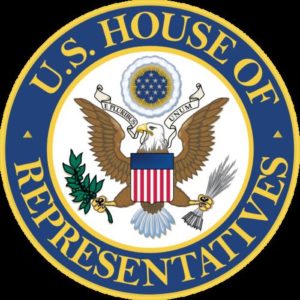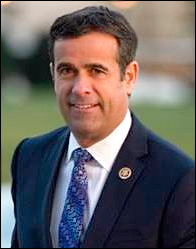By Jim Ellis — June 2, 2022
Senate
Pennsylvania: McCormick Campaign Attempts “Hail Mary” — The latest signals coming from the Pennsylvania Republican Senate recount suggest that former hedge fund CEO David McCormick’s campaign representatives know their collective backs are against the proverbial wall. The McCormick contingent is now asking for hand recounts from certain precincts in certain counties where they suspect “data abnormalities.”
Since Dr. Mehmet Oz’s small lead did not lapse opposite to what the McCormick campaign had originally predicted, it appears the chances are growing strong that Dr. Oz will be certified as the primary winner on June 8. The eventual nominee, presumably Dr. Oz, will face Democratic Lt. Gov. John Fetterman who easily won his party’s nomination on May 17.
Wisconsin: Dem Nomination Tightening — Milwaukee Bucks basketball club executive and former Obama White House aide Alex Lasry has released another of his internal polls testing the Democratic US Senate primary. The Normington Petts survey (May 18-22; 700 likely Wisconsin Democratic primary voters; live interview) finds Lasry moving closer to race leader Mandela Barnes, the state’s lieutenant governor. The new numbers find the Dem contest within three percentage points, with Barnes leading 34-31 percent, while state Treasurer Sarah Godlewski trails with an 18 percent preference factor.
In February, Barnes’s margin was 35-27-9 percent over Lasry and Godlewski, respectively. In actuality, this poll finds that Godlewski is the candidate having the most dynamic momentum right now, in effect doubling her level of support from the last quarter. The Democratic primary winner on Aug. 9 will then face Sen. Ron Johnson (R) in the general election.
House
NY-10: A 15th Candidate Joins — State Assemblywoman Jo Anne Simon (D-Brooklyn) became the 15th Democratic candidate to announce for the open court-drawn 10th Congressional District. The new 10th covers Lower Manhattan and part of Brooklyn.
Rep. Mondaire Jones (D-Westchester County) is moving from over an hour away to run in this district and faces former New York City Mayor Bill de Blasio, ex-Congresswoman Elizabeth Holtzman, now two state Assembly members, and two NYC City councilmembers within the large pack of candidates. This will clearly be one of the key races to watch in the New York congressional primary scheduled for Aug. 23. The FiveThirtyEight data organization rates this seat a D+69, so the Democratic primary will determine the new member.
NC-11: First Post-Primary Poll — Democratic nominee Jasmine Beach-Ferrara released an internal small sample poll from the Survey 160 firm (May 18-20; 308 likely NC-11 voters; text) that projects new Republican nominee Chuck Edwards, a Hendersonville area state Senator, to a 46-40 percent general election lead. Sen. Edwards defeated US Rep. Madison Cawthorn (R-Hendersonville) by a percentage point on May 17 to claim the GOP nomination.
Soon after a tough primary, it is not particularly surprising to see Edwards with an upside down favorability index of 36:40 percent. Rated as an R+14 district, it is likely the voting patterns will move back toward Edwards in greater numbers as we move further away from a divisive primary and closer to the general election.
Governor
Connecticut: Gov. Lamont Begins with Lead — Home state pollster Quinnipiac University tested the Connecticut governor’s contest (May 19-23; 1,660 registered Connecticut voters; live interview) and sees incumbent Ned Lamont (D) holding a 51-43 percent lead over his 2018 GOP opponent, businessman Bob Stefanowski. Gov. Lamont’s almost unanimous support among self-identified Democrats (92-6 percent) largely accounts for his positive margin in this heavily Democratic political domain.
The governor holds a 52:38 percent favorable job approval rating, which compares very favorably to President Biden’s upside-down 40:54 percent ratio. Democratic Sens. Chris Murphy and Richard Blumenthal post 45:37 and 45:43 percent respective scores. Sen. Blumenthal is on the ballot this year, suggesting a race against him could be one that potentially turns more competitive than expected.






 March 25, 2020 — Gov. Greg Abbott (R), who moved the Texas run-off from May 26 to July 14 this past Friday night means that 16 federal contests – one Senate and 15 House races – will have a longer secondary campaign cycle. In Texas, if no candidate receives majority support in a partisan primary the top two finishers from the particular party advance to a runoff election.
March 25, 2020 — Gov. Greg Abbott (R), who moved the Texas run-off from May 26 to July 14 this past Friday night means that 16 federal contests – one Senate and 15 House races – will have a longer secondary campaign cycle. In Texas, if no candidate receives majority support in a partisan primary the top two finishers from the particular party advance to a runoff election.